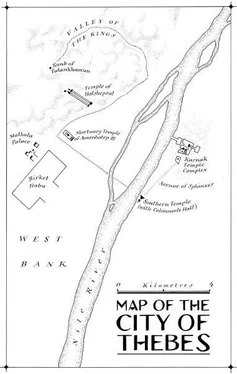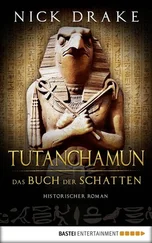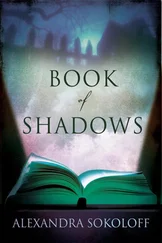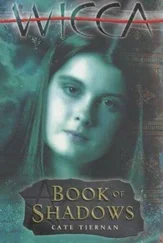Nick Drake - Tutankhamun - The Book of Shadows
Здесь есть возможность читать онлайн «Nick Drake - Tutankhamun - The Book of Shadows» весь текст электронной книги совершенно бесплатно (целиком полную версию без сокращений). В некоторых случаях можно слушать аудио, скачать через торрент в формате fb2 и присутствует краткое содержание. Жанр: Исторический детектив, на английском языке. Описание произведения, (предисловие) а так же отзывы посетителей доступны на портале библиотеки ЛибКат.
- Название:Tutankhamun: The Book of Shadows
- Автор:
- Жанр:
- Год:неизвестен
- ISBN:нет данных
- Рейтинг книги:4 / 5. Голосов: 1
-
Избранное:Добавить в избранное
- Отзывы:
-
Ваша оценка:
- 80
- 1
- 2
- 3
- 4
- 5
Tutankhamun: The Book of Shadows: краткое содержание, описание и аннотация
Предлагаем к чтению аннотацию, описание, краткое содержание или предисловие (зависит от того, что написал сам автор книги «Tutankhamun: The Book of Shadows»). Если вы не нашли необходимую информацию о книге — напишите в комментариях, мы постараемся отыскать её.
Tutankhamun: The Book of Shadows — читать онлайн бесплатно полную книгу (весь текст) целиком
Ниже представлен текст книги, разбитый по страницам. Система сохранения места последней прочитанной страницы, позволяет с удобством читать онлайн бесплатно книгу «Tutankhamun: The Book of Shadows», без необходимости каждый раз заново искать на чём Вы остановились. Поставьте закладку, и сможете в любой момент перейти на страницу, на которой закончили чтение.
Интервал:
Закладка:
Everyone moved on, shuffling along the long west wall. Here were carvings describing the water procession of the Gods to Karnak during the Opet Festival. Here were the agile acrobats and the barges with their rigging observed in minute detail, and the blind musicians with their instruments. It seemed each face was a portrait of an individual I might have recognized in a crowd. I wondered if my own face, and those of my family, might also be among them.
Then, with much jostling and tension, the royal group, attended by the officials and servants, moved across to the opposite wall, which continued the story of the festival. Tutankhamun and the Queen moved slowly along, reading the images carefully, as they listened to the High Priest and his acolytes who leaned respectfully towards them, whispering praises and information, no doubt alluding to the astonishing cost and the remarkable statistics of this great work of the temple’s glorification to the King’s and the Gods’ images. The event was following its ordained course.
They returned towards the entrance, and were invited to examine the last register of the wall carvings near the corner, describing the most important scene-in which the King entered the presence of the God within the shrine-when something happened. Tutankhamun was reading through the inscriptions of this most holy moment, under the direction of the High Priest-when suddenly he stepped backwards in alarm. The High Priest, profoundly shocked and ashamed, held his own hands up before his eyes, as if he had witnessed an appalling desecration. Instantly the palace guard moved into a defensive posture around the royal party, bristling with drawn curved daggers. Behind me, people craned their necks to see what was going on. I pushed my way forward, through the guards. Ay was already scrutinizing the carving the High Priest was pointing to with his staff. He allowed me to stand close to him, in order to examine it. In a cartouche, the King’s royal names had been completely erased.
Ay took charge. He spoke quietly to Tutankhamun, who was trembling, while Ankhesenamun tried to help him drink water. He ordered the desecrated carving to be concealed from view, and strictly instructed all those who had seen it never to speak of it on pain of death. The names would be recarved immediately. Ankhesenamun was whispering into Tutankhamun’s ear, and finally he nodded. Then, pretending all was well, the royal party continued with the tour. As she passed by, Ankhesenamun glanced at me. But we could not speak.
We all moved quickly back through the Colonnade Hall, between the great columns, and onwards into the Sun Court, where more crowds of priests had gathered and prostrated themselves in the sunlight of midday, dazzling after the soaring darkness, before the King and Queen. The procession stayed within the high shade of the great papyrus columns that ran along three sides. We walked around the Court in a strange hush-for everyone now knew something troubling had happened, and yet the ceremony continued as if nothing had changed. From there we entered the oldest part of the temple. I found myself in an ancient darkness. Everywhere the carved image of the old King Amenhotep dominated, making offerings to Amun-Ra, God of the temple and the city. The royal party continued through a pillared offering chamber. Along the walls, carved into the eternity of the stone, Amenhotep drove the sacred cattle, and made the ritual offerings of flowers and incense in the place where the gold barque of the God would rest during the festival. Beyond this point I had heard there were many small chapels leading from the Divine Sanctuary, and even smaller antechambers along the side walls, where, folded in deep shadows, stood images of the Gods fashioned in gold. But neither I nor almost any other man could continue beyond this point. Only the King and the highest-ranking priests could enter the Sanctuary of Amun himself at the dark heart of the temple, where his statue, which gave him earthly presence among men, was worshipped, fed and robed.
This was the moment, and Tutankhamun had to go forward alone into the mystery of the Sanctuary. Ankhesenamun could accompany him into the antechamber, but no further. He looked nervous, but seemed to take courage. Ankhesenamun and the King moved forward and disappeared together, and all was silence.
Rich drifts of incense and sweat rose up from the heat of all those human bodies crowded into the small chamber, and in the Sun Court behind us. Prayers were intoned by ranks of priests. Sistra were shaken, tinnily. The temple chantresses intoned the hymns. Time seemed to stretch on and on…I saw Ay raise his head slightly, as if wondering whether all was well.
And then suddenly the King and Queen reappeared together. He had exchanged the Blue Crown for the Double Crown of Upper and Lower Egypt. The vulture and the cobra flared in divine protection from his brow. She was wearing the high double-plumed crown that her mother Nefertiti had worn-and in doing so she proclaimed herself as the Queen as Goddess. Far from looking tentative or frightened, Tutankhamun now stared arrogantly ahead over the amazed crowd of priests and dignitaries gathered in the vestibule, and beyond that in the Sun Court. He waited, and then in his quiet, intense voice he spoke.
‘The Gods have revealed themselves to Tutankhamun, Living Image of Amun, in the Temple of Amun. I possess the royal names: the Horus name, Strong Bull, Most Fitting of Created Forms, King of Upper and Lower Egypt, Possessor of the Forms of Ra, Ruler of Truth. In these, my royal names, I wear the Double Crown and I hold the crook of government and the flail of Osiris. I declare from this day I am King in name and deed.’
Names are powers. They bring forth into reality that which they declare. This was a declaration of a new policy of independence. A new coronation. A stir of amazement and awe followed this astonishing, unexpected pronouncement. I would have given gold to behold Ay’s face as he listened to these words. But his bony head remained bowed.
The King continued: ‘Let this be proclaimed throughout the Two Lands. I declare I will celebrate this day with a new festival in the sacred name of Amun-Ra. Let this be recorded for ever in the writing of the Gods, and let these words go forth in writing throughout all the nomes of the Two Lands so that every subject of the Great House may know this great truth.’
The official scribes hurried forward with their palettes and sat cross-legged, their kilts stretched out over their knees like little tables, and wrote everything down swiftly on their open scrolls.
As I now realized they must have rehearsed many times, Ankhesenamun then rose and joined Tutankhamun, and they remained standing together while the crowd slowly absorbed the revelation and the implications of his words, and then got down on their knees to prostrate themselves. I wondered how Ay would respond to this audacious move in the great game of power. He turned to the multitude of faces, which were alert with anticipation that he would not accept such a demotion without a fight. But he was more intelligent than that. After a long, careful pause, as if it was he who held the destiny of the Two Lands in his hands, he spoke.
‘The Gods are all-knowing,’ he said. ‘We who have laboured all our lives to support and strengthen the Great House, and to restore lost order to the Two Lands, celebrate this proclamation. The King is King. May the Gods make him a great King.’
The scribes wrote this down, too, and on a signal from Ay they passed their scrolls swiftly, hand to hand, down the chamber. They were then taken off by assistants, to be copied and distributed everywhere throughout the land and the dominions, in scrolls and on carved stone stele. And then he led the crowd, prostrating himself before the royal couple like an elderly monster before his children, slowly and stiffly, and with the dangerous irony only he seemed to be able to insinuate into everything he did. Ankhesenamun and Tutankhamun had gambled everything on this moment, and on the success of their declaration. The next days would decide whether they had won, or lost.
Читать дальшеИнтервал:
Закладка:
Похожие книги на «Tutankhamun: The Book of Shadows»
Представляем Вашему вниманию похожие книги на «Tutankhamun: The Book of Shadows» списком для выбора. Мы отобрали схожую по названию и смыслу литературу в надежде предоставить читателям больше вариантов отыскать новые, интересные, ещё непрочитанные произведения.
Обсуждение, отзывы о книге «Tutankhamun: The Book of Shadows» и просто собственные мнения читателей. Оставьте ваши комментарии, напишите, что Вы думаете о произведении, его смысле или главных героях. Укажите что конкретно понравилось, а что нет, и почему Вы так считаете.











